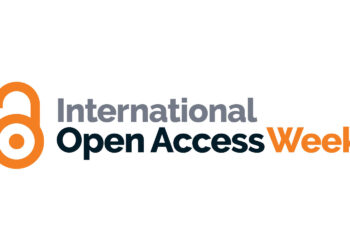
- Image via CrunchBase
The Google Book Settlement opt out deadline was extended by a federal court to September 4th, which is suddenly upon us (where did the summer go?).
The settlement is extremely complicated, and was the subject of much debate among my editorial colleagues. I’m curious to hear from our readers what their final decision was — to opt-in or opt-out — and why they chose that course.
Personally, I think the whole question may be moot, as the settlement is unlikely to be approved by a court as it stands. There are too many problems with creating a monopoly for Google, and with violating several international treaties. We may end up starting this debate all over again with a new, revised settlement, or (gasp!) the case could actually go to court.
I found Edward Hasbrouck’s writing on the settlement was particularly informative and helpful in understanding the implications of what opting in means. Although I see great value in getting books indexed to help reader awareness, and saving orphan works is tremendously important, my advice was to opt out of the settlement. Opting out seems to provide a better level of control over the works where we hold the rights, leaving us with more options.
We’re already a partner in Google’s Books program, and I’d rather negotiate our own terms for inclusion of our works. The financial rewards of the settlement don’t amount to much for a small publishing house. And I worry about any monopoly provider in any market–it would be bad for publishers and bad for readers if Google was granted the rights to proceed with no possible competition, now or in the future.
So my vote is “yes” for the concept of Google Books, but “no” for the terms of this particular settlement.
What did you decide? Let us know in the comments section below.
Discussion
6 Thoughts on "The Google Books Settlement–What Did You Choose?"
As you predicted, this ain’t over with, and the courts will get involved:
http://news.cnet.com/8301-30684_3-10335976-265.html
Amazon is coming out swinging.
I’ve seen articles that dismiss Amazon (and Microsoft’s) complaints just because they’re competitors for Google. But I think that’s misguided, we want competition in this field and as Amazon points out, this settlement prevents that:
“It also creates a cartel of authors and publishers—the Books Rights Registry—operating with virtually no restrictions on its actions, with the potential to raise book prices and reduce output to the detriment of consumers and new authors or publishers who would compete with the cartel members. Indeed, the agreement is even arguably unlawful on its face because it constitutes price fixing by horizontal competitors—namely, the Rightsholders, who are agreeing collectively on a mechanism for setting the highest possible prices to be charged for their works.”
The Author’s Guild has responded, calling Amazon “hypocrites” and citing their attempts to use the Kindle file format and DRM to create a monopoly in the e-books market. The big difference, however, is that Amazon is making a business play (albeit a distasteful one) on their own, and they’re not being granted their monopoly by the courts.
Another interesting piece came out today, separate from the controversial settlement. Google Books’ system, their metadata, is being described as “a train wreck: a mishmash wrapped in a muddle wrapped in a mess. …”
The French Publishers Association has filed a formal complaint against the settlement, and the Science Fiction Writers Association has opted-in, but only for the purpose of lodging a formal objection to the terms of the settlement.
![Reblog this post [with Zemanta]](http://img.zemanta.com/reblog_e.png?x-id=91b930db-ed2b-4881-b284-b6d1493c5ee3)


